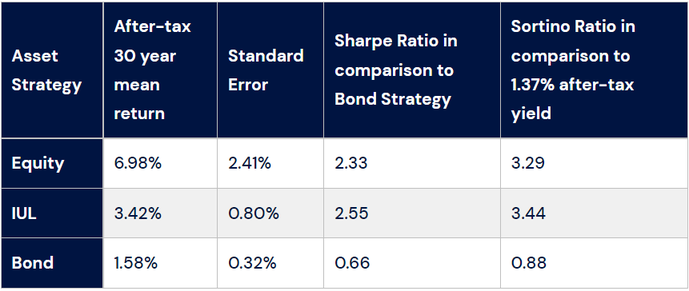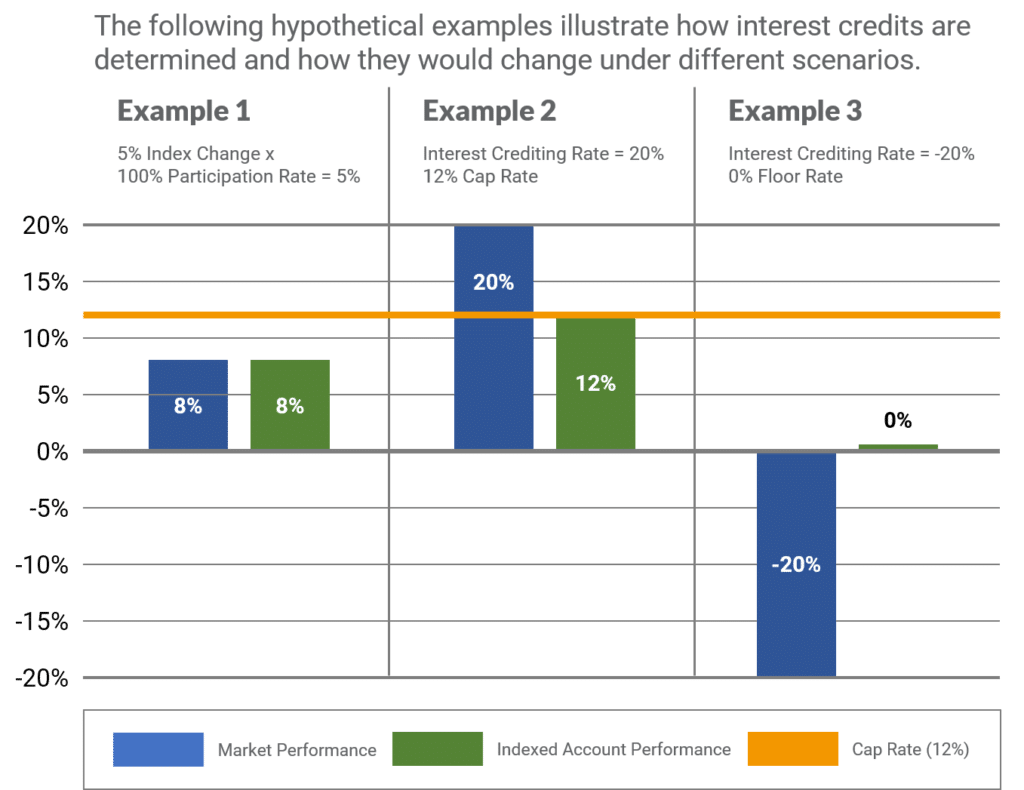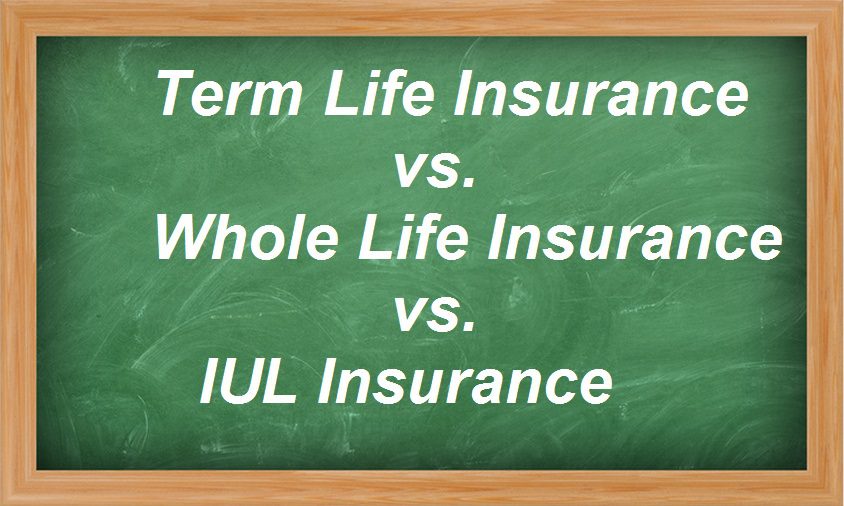All Categories
Featured
Table of Contents
1), frequently in an attempt to beat their group averages. This is a straw male argument, and one IUL people love to make. Do they compare the IUL to something like the Vanguard Overall Securities Market Fund Admiral Show to no lots, an expenditure ratio (EMERGENCY ROOM) of 5 basis factors, a turn over ratio of 4.3%, and an exceptional tax-efficient document of distributions? No, they contrast it to some terrible actively managed fund with an 8% load, a 2% EMERGENCY ROOM, an 80% turnover ratio, and an awful record of temporary capital gain circulations.
Mutual funds typically make yearly taxable distributions to fund owners, even when the worth of their fund has decreased in value. Mutual funds not only call for income coverage (and the resulting annual taxes) when the common fund is going up in worth, however can additionally enforce revenue tax obligations in a year when the fund has actually decreased in value.
That's not how mutual funds work. You can tax-manage the fund, harvesting losses and gains in order to reduce taxed distributions to the investors, yet that isn't somehow mosting likely to alter the reported return of the fund. Just Bernie Madoff types can do that. IULs stay clear of myriad tax obligation catches. The ownership of common funds may need the shared fund owner to pay projected taxes.

IULs are simple to position to make sure that, at the owner's fatality, the recipient is exempt to either revenue or inheritance tax. The same tax obligation decrease strategies do not function virtually too with shared funds. There are many, usually pricey, tax catches related to the moment acquiring and selling of shared fund shares, catches that do not use to indexed life Insurance.
Possibilities aren't really high that you're going to be subject to the AMT due to your common fund distributions if you aren't without them. The remainder of this one is half-truths at finest. For example, while it is true that there is no earnings tax due to your beneficiaries when they acquire the earnings of your IUL plan, it is likewise true that there is no earnings tax due to your heirs when they acquire a common fund in a taxed account from you.
Universal Guaranty Investment Company
There are better methods to stay clear of estate tax concerns than acquiring investments with low returns. Common funds might trigger earnings taxation of Social Security advantages.

The development within the IUL is tax-deferred and might be taken as free of tax earnings through fundings. The policy proprietor (vs. the shared fund supervisor) is in control of his/her reportable income, therefore enabling them to reduce or perhaps eliminate the tax of their Social Safety and security benefits. This is excellent.
Below's another minimal concern. It's true if you buy a shared fund for state $10 per share just prior to the distribution day, and it distributes a $0.50 distribution, you are then mosting likely to owe tax obligations (possibly 7-10 cents per share) regardless of the truth that you have not yet had any type of gains.
In the end, it's truly regarding the after-tax return, not exactly how much you pay in taxes. You're additionally possibly going to have more cash after paying those taxes. The record-keeping requirements for possessing mutual funds are substantially much more intricate.
With an IUL, one's documents are kept by the insurance coverage firm, duplicates of yearly statements are sent by mail to the owner, and circulations (if any kind of) are completed and reported at year end. This is also type of silly. Naturally you ought to maintain your tax obligation records in situation of an audit.
Universal Life Tax Shelter
Barely a factor to purchase life insurance. Mutual funds are generally part of a decedent's probated estate.
Furthermore, they undergo the hold-ups and expenses of probate. The proceeds of the IUL policy, on the other hand, is always a non-probate circulation that passes beyond probate straight to one's called recipients, and is for that reason exempt to one's posthumous financial institutions, unwanted public disclosure, or similar hold-ups and prices.
Medicaid disqualification and life time earnings. An IUL can give their proprietors with a stream of income for their whole lifetime, no matter of how lengthy they live.

This is beneficial when organizing one's events, and converting assets to earnings before a nursing home confinement. Shared funds can not be converted in a comparable manner, and are generally thought about countable Medicaid possessions. This is an additional dumb one advocating that bad people (you understand, the ones that need Medicaid, a government program for the inadequate, to pay for their assisted living facility) must utilize IUL rather of mutual funds.
Iul Life Insurance Meaning
And life insurance policy looks terrible when compared rather versus a retirement account. Second, people who have cash to get IUL over and beyond their pension are mosting likely to need to be terrible at handling cash in order to ever get Medicaid to spend for their retirement home expenses.
Chronic and terminal disease rider. All policies will permit a proprietor's very easy accessibility to money from their policy, frequently forgoing any surrender charges when such people endure a severe illness, need at-home care, or become constrained to an assisted living facility. Mutual funds do not supply a similar waiver when contingent deferred sales fees still relate to a shared fund account whose proprietor needs to sell some shares to money the prices of such a stay.
Seguros Universal Insurance
You get to pay more for that benefit (cyclist) with an insurance coverage plan. Indexed universal life insurance policy offers death benefits to the beneficiaries of the IUL owners, and neither the owner neither the recipient can ever lose cash due to a down market.
Now, ask yourself, do you in fact need or desire a fatality benefit? I absolutely do not need one after I get to economic self-reliance. Do I want one? I suppose if it were inexpensive enough. Obviously, it isn't cheap. On standard, a purchaser of life insurance policy spends for the true cost of the life insurance policy benefit, plus the prices of the policy, plus the profits of the insurance firm.
Universal Life Safety Products
I'm not completely certain why Mr. Morais included the entire "you can't shed money" again right here as it was covered fairly well in # 1. He simply wanted to duplicate the finest selling factor for these points I expect. Once more, you do not lose small bucks, but you can lose actual bucks, along with face major chance price due to reduced returns.

An indexed global life insurance plan proprietor might exchange their policy for an entirely different plan without triggering income tax obligations. A mutual fund proprietor can stagnate funds from one common fund firm to another without selling his shares at the previous (therefore triggering a taxable occasion), and buying new shares at the latter, frequently based on sales costs at both.
While it is true that you can exchange one insurance policy for one more, the factor that people do this is that the very first one is such a dreadful plan that even after getting a brand-new one and experiencing the very early, unfavorable return years, you'll still come out in advance. If they were offered the best plan the very first time, they should not have any type of need to ever before exchange it and experience the very early, adverse return years once again.
Table of Contents
Latest Posts
Is Universal Life Whole Life
Universal Life Brokers
Index Whole Life Insurance
More
Latest Posts
Is Universal Life Whole Life
Universal Life Brokers
Index Whole Life Insurance